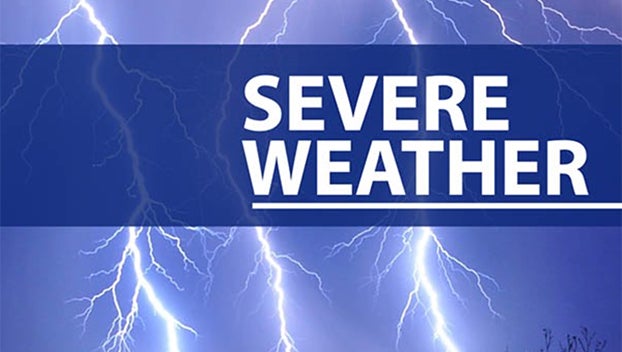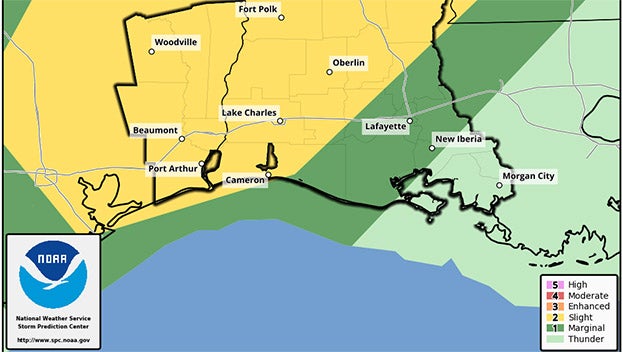Wednesday update: National Weather Service talks severe storm concern
Published 9:16 am Wednesday, January 19, 2022
|
Getting your Trinity Audio player ready...
|
The risk for severe storms has increased to a slight 15 percent risk later Wednesday evening and overnight.
According to the National Weather Service, isolated tornadoes, damaging winds and large hail are the primary threats.
The risk for freezing rain or sleet still looks to be on the very low side for early Friday morning, Warning Coordination Meteorologist Roger Erickson said.
The Texas Department of Public Safety (DPS) is reminding Texans that freezing rain, ice and snow can pose major hazards to drivers and pedestrians and is urging residents to be careful in such conditions.
DPS encourages everyone to take the appropriate safety precautions during wintry weather. This includes checking the battery, windshield wipers, tire pressure, tire treads and fluid levels in their vehicles, as well as ensuring door and trunk locks are properly lubricated to prevent them from freezing.
DPS offers the following tips to stay safe on the road this winter:
- Monitor local weather broadcasts and check the latest weather conditions from the National Weather Service before you hit the road.
- Avoid traveling when sleet, freezing rain or snow is predicted, and monitor road conditions by visiting Drive Texas or calling (800) 452-9292.
- If you must drive in inclement weather, allow extra time to reach your destination. Share your travel plans with a friend or family member so someone knows the route you’re taking.
- On icy roads, drive slowly and increase the distance between your vehicle and others, as you may need additional room to stop.
- Do not use cruise control.
- Ensure your vehicle has a full tank of gas.
- Be aware that ice accumulates on bridges and overpasses before drivers may see it on roads, so approach them more slowly in winter weather.
- Watch for downed trees and power lines. If a stop light is out, treat the intersection as a four-way stop.
DPS also offers the following tips to help protect you and your home all season:
- Use an all-hazards weather radio for up-to-date warnings, watches, forecasts and other hazard information.
- Sign up for calls or texts from your local emergency notification system.
- Insulate outside faucets and pipes near outer walls.
- Make sure furnaces, heaters, fireplaces and wood stoves are clean, well-ventilated and in good working condition.
- Keep space heaters at least three feet away from walls and combustible materials, including furniture and bedding. Turn them off when you’re away or sleeping. Also ensure space heaters cannot tip over and there is no damage to the cord.
- To prevent carbon monoxide poisoning, never operate a generator or other fuel-powered device inside a home, garage or other enclosed space. The odorless, colorless gas is deadly and is produced any time a fossil fuel is burned. Sources include motor vehicle engines, generators and fuel-burning appliances or heating systems. Consider installing a carbon monoxide detector in your home.
- Never heat your home with a gas stove or oven.
- Check on friends and family members whose health or age may put them at greater risk.
- Stock up on firewood and supplies, including canned goods, bottled water and medication.
Drivers are also encouraged to keep the following emergency supplies in their vehicles:
- Blanket or sleeping bag;
- Extra clothes, gloves and a hat;
- Cell phone, radio, flashlight, extra batteries and phone charging cord;
- First aid kit and pocket knife;
- High-calorie, non-perishable food and bottled water;
- A bag of sand or cat litter to provide traction for tires;
- Windshield scraper, tool kit, booster cables, tow rope and a shovel; and
- Jumper cables.







